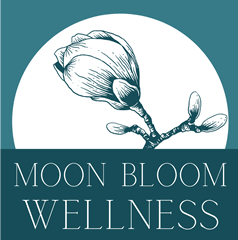How to block out everything that’s keeping you up
I don’t know about you, but sleep doesn’t always come that easily for me. I don’t typically have trouble falling asleep, but sleeping through the night is a whole other story. Any small sound can startle me awake. It’s…not great. But something that has helped me enormously—and that I now can’t live without—is a white noise machine. I have my trusty white noise machine on my bedside table while I sleep, and it’s been enormously helpful in blocking some of the outside sounds and “house” noises that tend to keep me awake.
So, what exactly is white noise and how can white noise be used to improve sleep? I reached out to three sleep experts to unpack white noise for sleep: what it is, how it works, and how to best use it to improve your sleep.
What Is White Noise?
Put simply, white noise is “a consistent sound that includes all the different sound frequencies a human ear can hear, played at the same level,” explains Sanam Hafeez, MD, neuropsychologist and director of Comprehend the Mind. Dr. Hafeez describes it as a “shhh” sound that’s similar to a fan or radio static. Some other examples of naturally occurring white noise include rain outside, fans, air conditioners, and the sound of ocean waves crashing.
According to Ryan Sultan, MD, psychiatrist and research director at Integrative Psych in NYC, white noise machines may fulfill an evolutionary need, since humans are wired to fall asleep to the predictable sounds of nature, such as rustling leaves, ocean waves, and insects humming. Our brains expect this, Dr. Sultan says.
“But modern life doesn’t sound like that—especially if you live near traffic, sirens, or loud neighbors,” Dr. Sultan describes. “White noise helps by blocking out all that unpredictable chaos, getting your brain back into a safer, more natural ‘sleep mode.’”
How White Noise Helps With Sleep
Because white noise stays steady and doesn’t change, it can block out sudden sounds in your environment that might wake you up while you’re sleeping. “This makes it helpful for people who live in noisy areas or have trouble falling asleep,” says Dr. Hafeez. “It works by masking distracting sounds so your brain can relax.”
Some benefits of white noise, according to Dr. Hafeez, include:
*Blocking out background noise such as traffic, barking dogs, creaking doors, or talking
*Helping people fall asleep faster by creating a soothing environment
*Encouraging deeper sleep by decreasing night time wake-ups
*Calming babies and helping them sleep longer
*Potentially improving focus for those with ADHD or anxiety before bed
How to Use White Noise for Sleep
When using white noise for sleep, it’s best to have it going continuously, says Leah Kaylor, PhD, licensed psychologist specializing in sleep with a book about sleep coming out in 2025, called The Sleep Advantage. She suggests not using timers, but choose a white noise machine or app that will run all night long. “The goal is to maintain a stable sound environment,” she says.
Additionally, you want to make sure the white noise is loud enough to mask unpredictable sounds outside or inside your home, but not too loud. Too-loud white noise can be overstimulating, or may even damage your hearing.
Other tips Kaylor recommends include:
1. Place the white noise between yourself and the noise source, such as near a window.
2. Use the white noise machine every night; this way, your brain will start to associate the white noise with falling asleep.
3. Choose natural, smooth sounds rather than mechanical or tinny noise.
Choosing the Best White Noise Machine or App
There are a variety of ways that white noise can be delivered into your environment. You can use a white noise machine, which is simply a small device whose main job is to make continuous white noise. You can also use a phone app for white noise, and you can connect this app to a speaker, if desired. Finally, some smart speakers (like Alexa, Google Assistant, Amazon Echo) will deliver white noise.4
Here are Dr. Hafeez’s tips for choosing the best white noise source for you:
*Think about where and how you’ll use it—at home, while traveling, or for a baby—and pick one that fits your lifestyle.
*Look for one with a variety of sound options, such as fan sounds, rain, or ocean waves, and pick which one you find most personally relaxing.
*Pick one with an adjustable volume and with sound loops that are smooth, without noticeable breaks.
*If you’re using an app, check reviews and make sure it works offline to avoid interruptions.
Potential Downsides of White Noise for Sleep
There aren’t many downsides to white noise for sleep. It’s not known to be dangerous or harmful to people.
However, at times, people can become overly reliant on white noise, says Dr. Hafeez. What happens is that they have trouble falling asleep without the white noise. This can be challenging if you are on vacation (though you can bring your white noise in most cases!) or if your source of white noise gets broken or disabled in some way.
In addition, white noise has the potential to cause hearing damage—but only if it’s turned up to very high volumes. “If the volume is too high, it might damage hearing over time, especially in babies,” Dr. Hafeez says.
Finally, some white noise machines or apps may end up being more annoying than helpful. “Poorly made machines or apps can have loops that become distracting once you notice them,” Dr. Hafeez notes.
Alternatives to White Noise for Sleep
White noise doesn’t work for everyone. “Some people might find it irritating or feel more alert instead of relaxed,” Dr. Hafeez points out.
If white noise doesn’t work for you, there are various other types of noise you can try, says Dr. Kaylor. Some that she recommends include:
*Pink noise, which is softer, lower frequency noise, similar to a steady rain
*Brown noise, which is a deeper, rumbling sound, like distant thunder
*Nature sounds, like rainfall, ocean waves, river streams.
*Binaural beats, which are sound frequencies intended to influence brainwave activity toward a more relaxed and sleep state
Alternatively, you don’t need to use any type of sound machine or app. “Some people find gentle music or sleep meditations work better for relaxing their mind,” says Dr. Hafeez. “You could also try using a fan or humidifier, which makes a steady, soothing background sound without needing an app or machine.”
Takeaways
White noise can have powerful impacts on people, and may be the magic ticket to better sleep for some individuals. “I worked at the VA where I helped a veteran who only slept one hour of sleep per night due to anxiety, trauma, and fear of sleep,” shares Dr. Kaylor. “After trying many strategies it was the consistent sound of a fan that helped him begin to sleep more hours.”
It’s pretty incredible that something as simple as white noise from a fan could have such an impact. These days, there are so many options for white noise, including white noise machines, apps, and smart speakers.
Keep in mind, though that white noise isn’t the be-all and end-all sleep solution for everyone. If you’ve tried white noise, or other background noise options for sleep, and you consistently have trouble falling asleep or staying asleep, it may be time to reach out to a sleep specialist for support.
By Wendy Wisner and medically reviewed by Shaheen Lakhan, MD, PhD, FAAN

